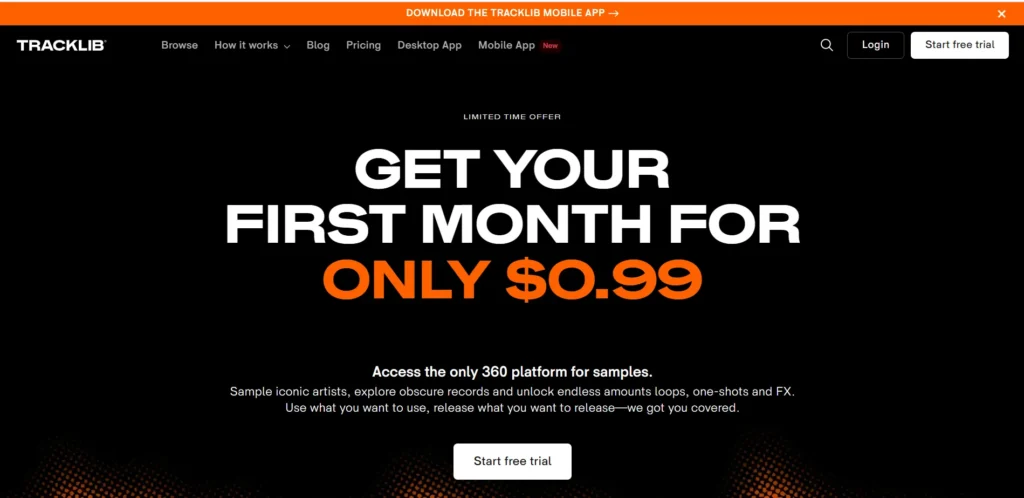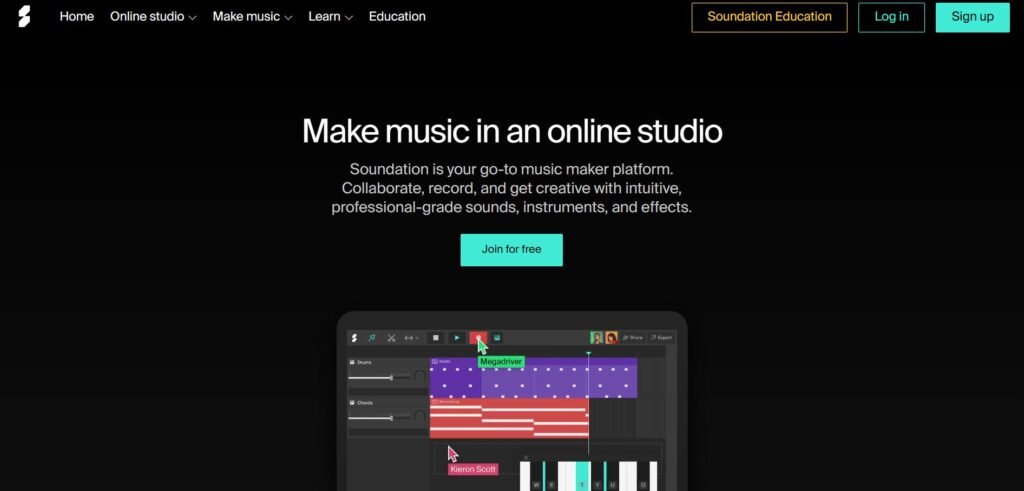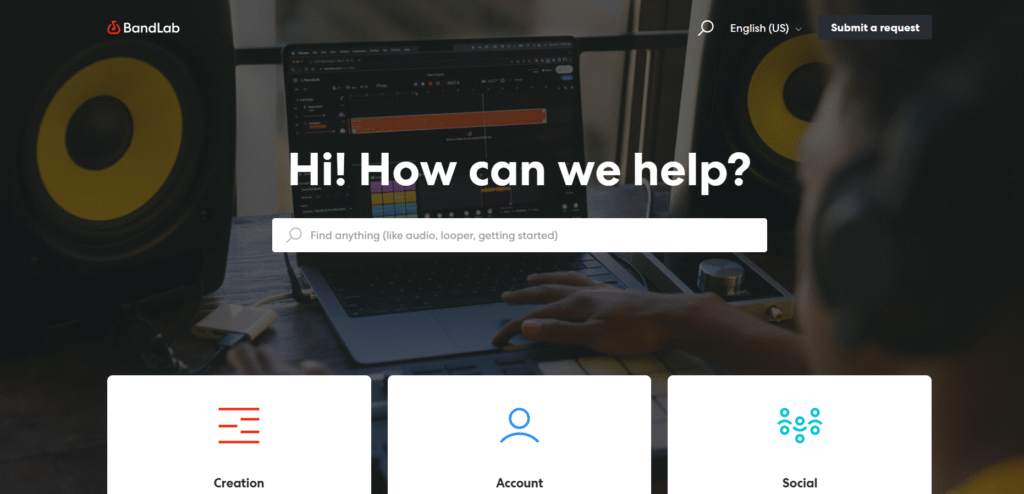Tracklib is a unique music licensing platform that allows producers, artists, and content creators to legally sample original music from a wide-ranging catalog of real songs. Unlike traditional sample packs or royalty-free loops, Tracklib offers access to actual recordings from various genres and eras, making it a compelling option for those who want to add authenticity and depth to their music. Whether you’re a beatmaker looking to elevate your sound or a professional composer seeking legally clearable samples, Tracklib presents a streamlined solution to a historically complex process. But is it the right tool for your creative or professional needs?
Is Tracklib Right for You?
Tracklib is particularly useful for music producers, beatmakers, and composers who want to incorporate real, licensed samples into their work without the legal headaches of traditional sample clearance. It’s also a valuable tool for educators and students in music production programs who want to learn about sampling in a legal and ethical way.
However, Tracklib may not be ideal for hobbyists or casual creators who are looking for free or royalty-free samples. Its licensing model, while transparent, involves costs that might not be justifiable for those working on non-commercial or low-budget projects. Additionally, users who prefer creating music entirely from scratch or using synthesized sounds may find limited value in what Tracklib offers.
What It Does Well
- Access to real, original music recordings
- Simplified sample clearance process
- Genre-diverse catalog with global selections
- Integrated tools for previewing and chopping samples
- Clear licensing terms for commercial use
One of Tracklib’s standout features is its catalog of real music recordings, including tracks from the 1960s to today, across genres like soul, jazz, funk, classical, and more. This gives producers access to textures and performances that are difficult to replicate with modern tools. For example, a hip-hop producer might find a rare 1970s soul track, chop it up using Tracklib’s built-in editor, and legally release the resulting beat without worrying about copyright issues.
Another major strength is the simplified licensing process. Traditionally, clearing a sample could take months and involve complex negotiations. Tracklib standardizes this by offering pre-set licensing tiers, making it easier for independent artists to release music without legal risk. This is especially beneficial for creators who distribute their work on streaming platforms or submit it for sync licensing opportunities.
Where It Falls Short
Despite its strengths, Tracklib has some limitations. First, while the catalog is growing, it may not always include the specific type of sample a user is looking for. Those seeking highly recognizable or mainstream hits may be disappointed, as many of the tracks are from lesser-known artists or niche genres.
Second, the cost structure can be a barrier for some users. While browsing and previewing are free, downloading and licensing samples come with fees. This can add up quickly for producers who rely heavily on sampling in their workflow. Additionally, the licensing terms, while clearer than traditional methods, still require users to understand usage rights and revenue splits, which may be daunting for beginners.
Free vs Paid: What’s the Catch?
Tracklib offers a free account that allows users to browse the catalog, listen to full tracks, and use the sample editor. However, to download and license samples for use in a project, users must purchase individual tracks or subscribe to a paid plan. Paid plans typically include a set number of downloads per month and discounts on licensing fees.
For professionals who regularly use samples in commercial projects, the paid plans can be cost-effective and time-saving. However, for occasional users or those working on non-commercial content, the free plan may be sufficient for exploration but limiting for actual production.
Are There Alternatives?
- Splice – Offers royalty-free loops and samples with a subscription model
- Loopmasters – Provides downloadable sample packs across genres
- Tracktion Retromod – Focuses on vintage synth sounds rather than real recordings
While these alternatives offer different approaches to sampling and sound design, none provide the same access to original, licensable music recordings that Tracklib does. Each tool serves a slightly different purpose, so the best choice depends on your creative goals and legal requirements.
Verdict
Tracklib is a powerful and innovative tool for music creators who want to sample real music legally and efficiently. It’s especially valuable for producers working in genres like hip-hop, R&B, and electronic music, where sampling is a core part of the creative process. However, its cost structure and licensing model may not suit everyone, particularly those on tight budgets or with minimal sampling needs.
If you’re a serious producer looking to add authenticity and depth to your tracks while staying legally compliant, Tracklib is worth exploring. On the other hand, if you’re a casual creator or prefer royalty-free content, you might find more value in alternative platforms. Ultimately, the decision comes down to how central sampling is to your workflow and how much you’re willing to invest in quality and legality.



